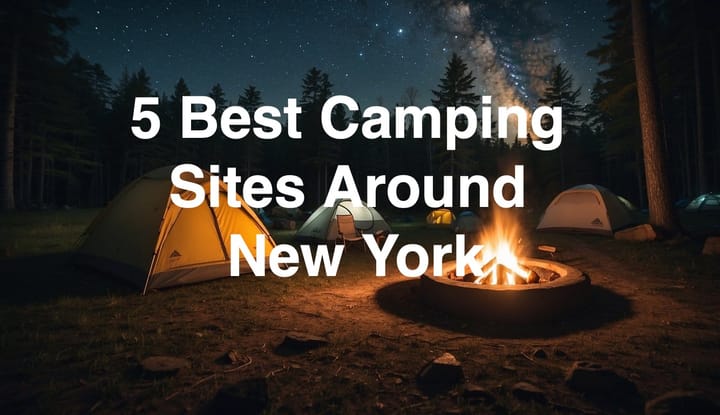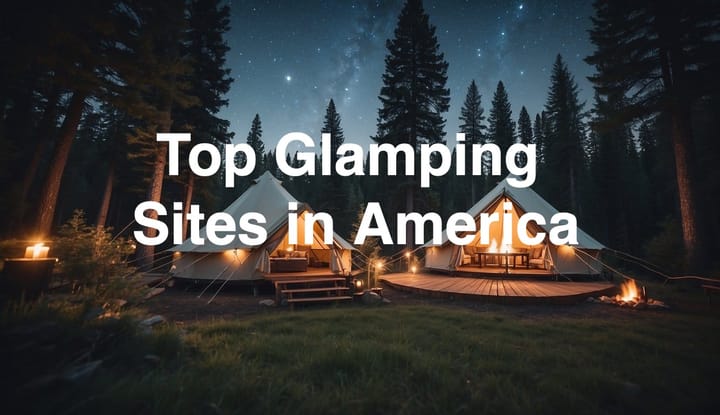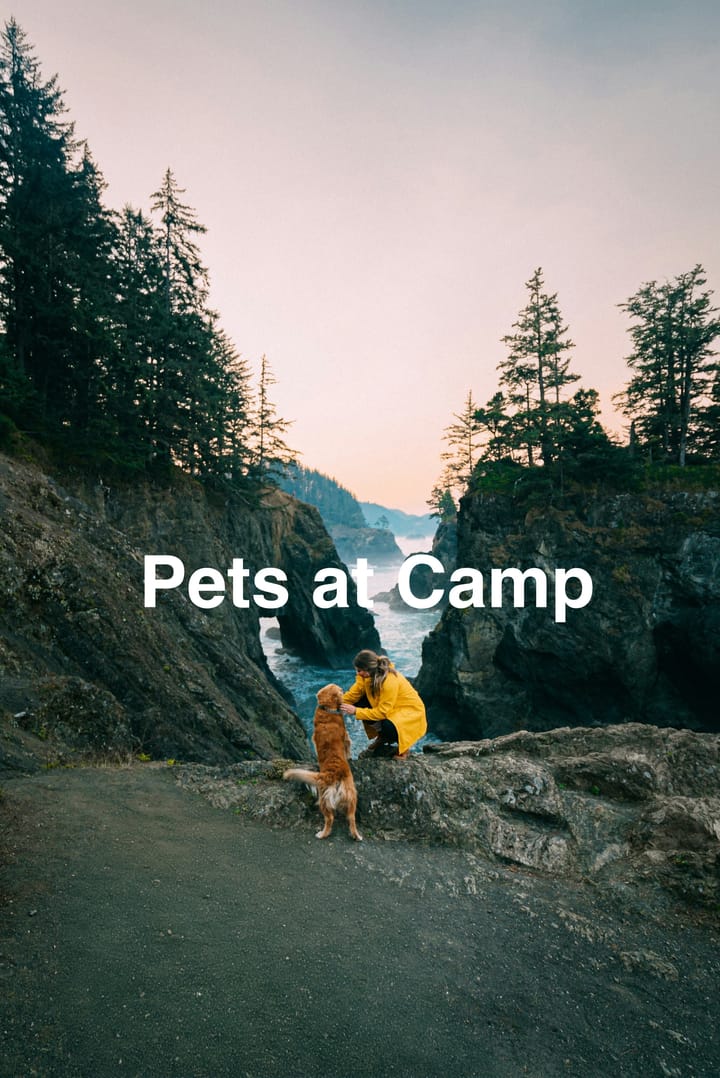Benefits of Camping
Camping is an activity that not only serves as a temporary escape from the mundane routines of everyday life but also offers a range of health benefits that cater to both physical and mental well-being.
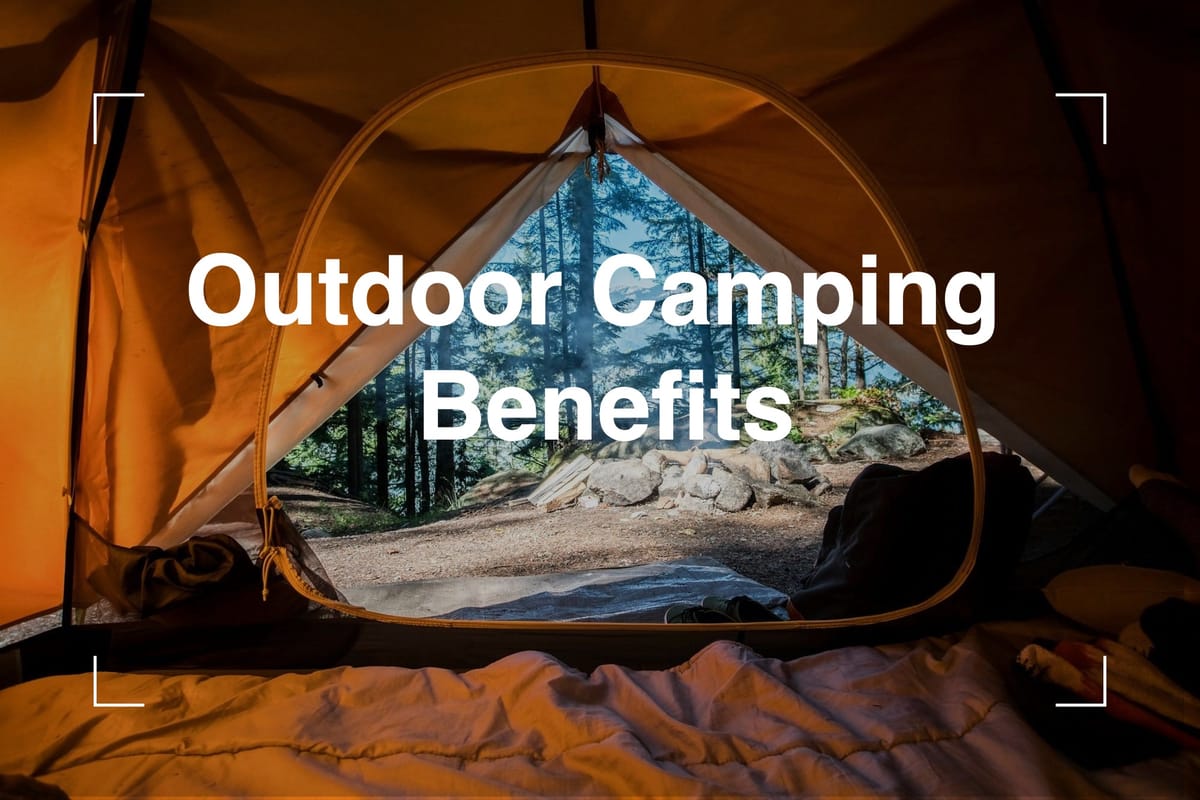
When you engage in camping, you immerse yourself in nature, breathe in fresh air, and undertake physical activities that enhance your fitness and boost your immune system.
The simplicity of living outdoors even for a short period can provide a profound sense of peace and can help sharpen survival and practical skills that are often overlooked in the urban environment.
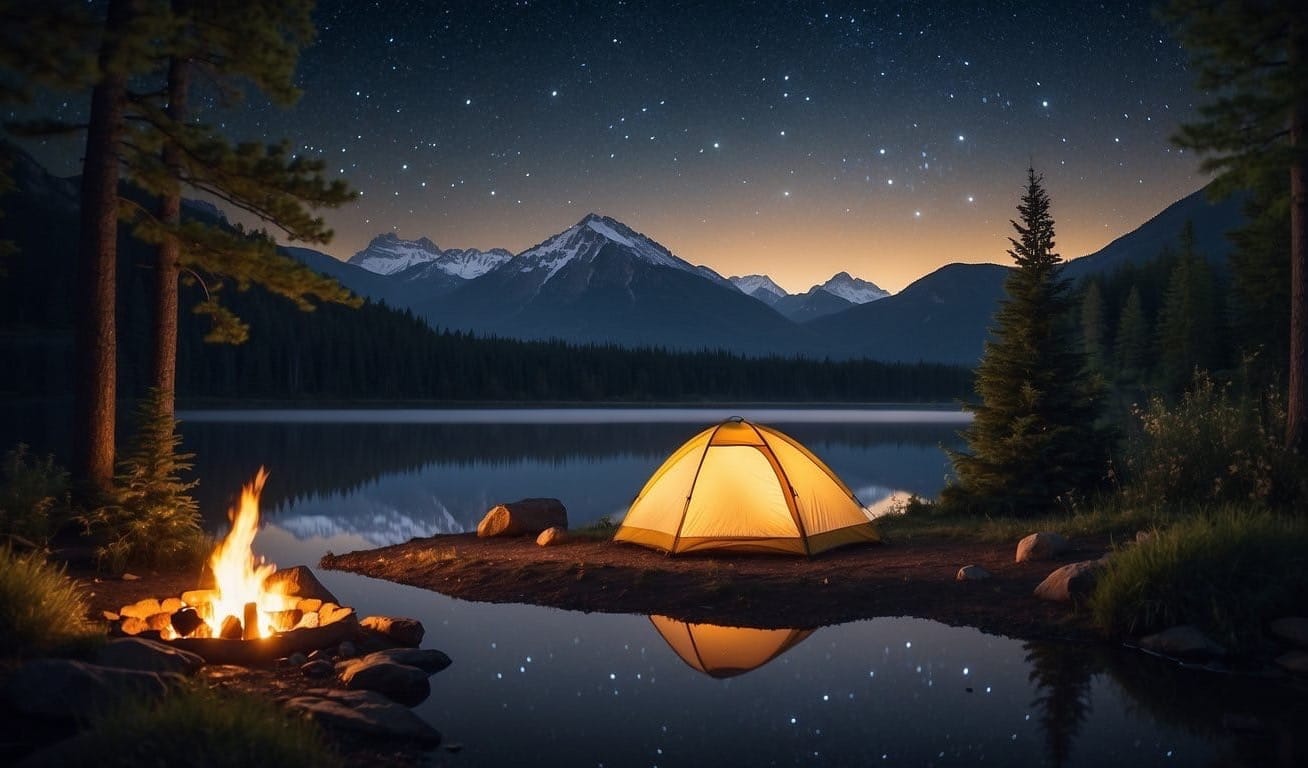
Mental health is just as positively impacted when you take time out to camp.
The tranquil settings of a natural environment can significantly lower stress levels and improve mood.
Being away from the constant distractions of digital screens and the pressures of modern life can act as a digital detox, allowing you to reconnect with yourself and others on a deeper level.
The social aspect of camping also comes into play, offering an opportunity to strengthen bonds with family and friends, engage in collaborative tasks, and meet new people with shared interests in adventure and exploration.
Key Takeaways
- Camping promotes physical fitness and connection with nature.
- It provides mental health benefits through stress reduction and a digital detox.
- The activity fosters social bonding and personal skill development.
Physical Health Advantages of Camping
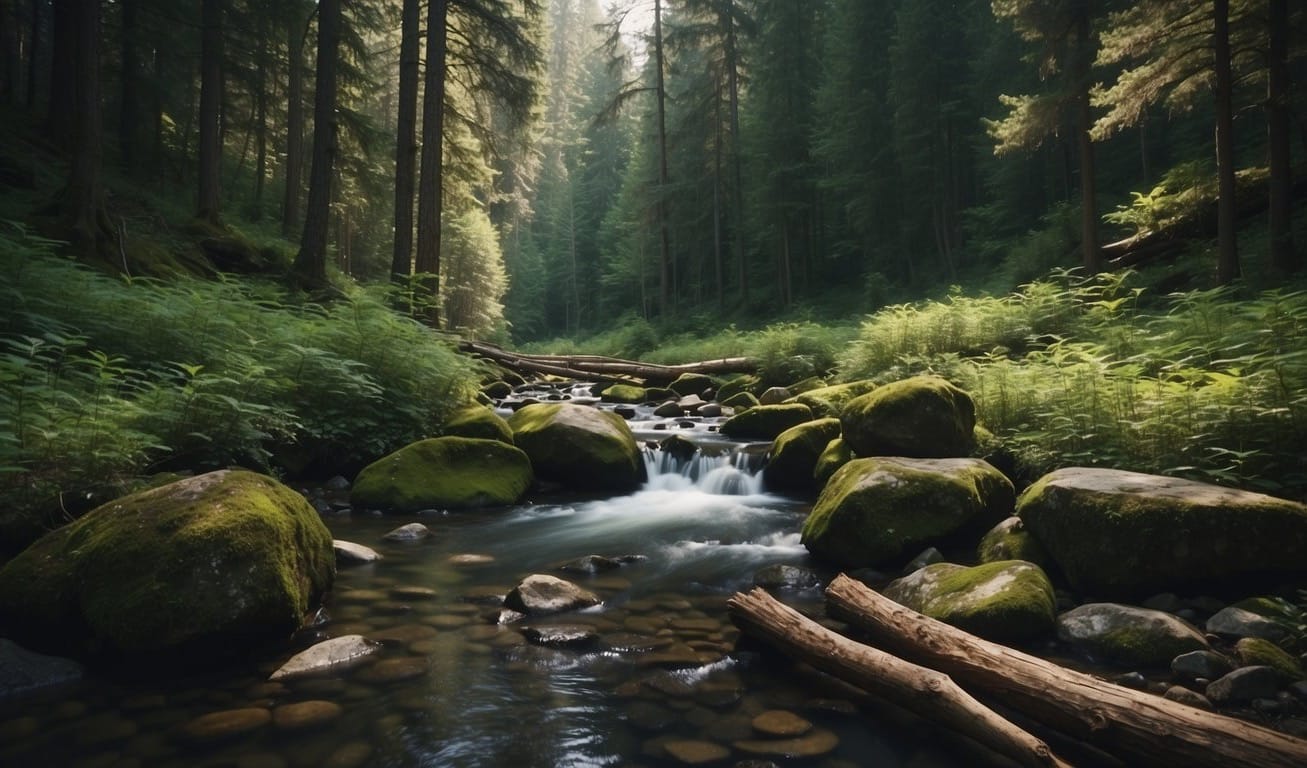
Engaging in outdoor activities like camping offers several measurable benefits to your physical health.
You can take advantage of natural exercise, receive nourishing sunlight, and enjoy restorative sleep.
Engagement with Regular Exercise
When you camp, your body naturally becomes more active.
Activities such as hiking, gathering firewood, or even setting up a tent contribute to your overall physical activity levels.
- Cardiovascular health: Regular exercise helps to strengthen your heart and improve your cardiovascular health.
- Endorphins release: Physical activity boosts the production of endorphins, which can elevate mood and reduce pain.
Exposure to Sunlight and Vitamin D
Camping exposes you to sunlight, which is instrumental in vitamin D synthesis. Vitamin D plays a vital role in bone health and immune function.
- Sunlight exposure: Around 15-30 minutes of daily sunlight exposure can assist in your body's vitamin D production.
- Circadian rhythm regulation: Natural light exposure during camping helps regulate your circadian rhythm, promoting healthier sleep patterns and daytime alertness.
Improved Sleep Quality
Sleeping outdoors can improve the quality of your sleep, thanks to the natural synchronization with the circadian rhythm and reduced exposure to artificial light.
- Sleep environment: The quiet and dark environment typically found in nature can contribute to deeper sleep.
- Physical health improvement: Quality sleep is crucial for recovery and maintaining overall physical health, aiding in tissue repair and cognitive function.
Mental Health and Emotional Well-being
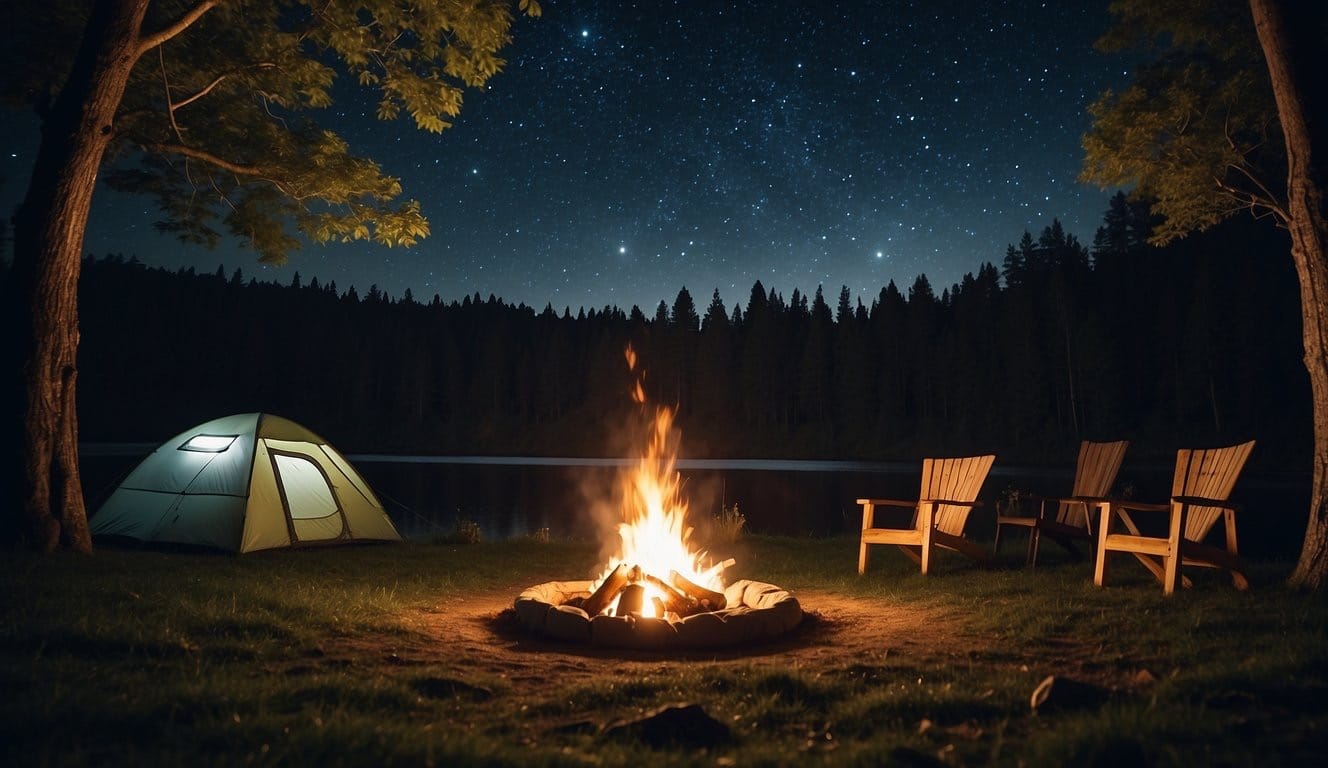
Camping can significantly benefit your mental health, particularly by reducing stress, enhancing mood and focus, and boosting your self-esteem and confidence.
Reduction of Stress and Anxiety
When you immerse yourself in the serenity of a natural environment, your cortisol levels—often referred to as the stress hormone—can decline, facilitating a reduction in stress and anxiety.
Activities such as hiking, fishing, or simply being in the calm presence of the outdoors can act as a natural decompressor for your mind.
- Stress Reduction: Regular exposure to nature can lower stress markers.
- Anxiety Alleviation: Activities with repetitive tasks, like setting up a tent or gathering wood, can mediate anxiety through focus and engagement.
Nature's Impact on Mood and Focus
Spending time in nature while camping has been associated with the release of serotonin, a neurotransmitter that helps regulate mood.
Enhanced serotonin levels can lead to an improved state of well-being and emotional stability.
- Mood Enhancement: You may notice an uplift in your mood due to increased sunlight and activity.
- Focus: Natural settings can aid in restoring mental fatigue, leading to greater concentration and attentiveness in tasks post-trip.
Boosting Self-esteem and Confidence
Camping provides opportunities to overcome challenges and learn new skills, both of which can contribute to elevated self-esteem and confidence.
Successfully navigating a hike or cooking a meal over a fire can offer a satisfying sense of achievement.
- Self-esteem: Tackling and accomplishing outdoor tasks may enhance your self-perception.
- Confidence: Acquiring and refining outdoor skills can translate into an overall boost in confidence.
Enhancing Social Connections
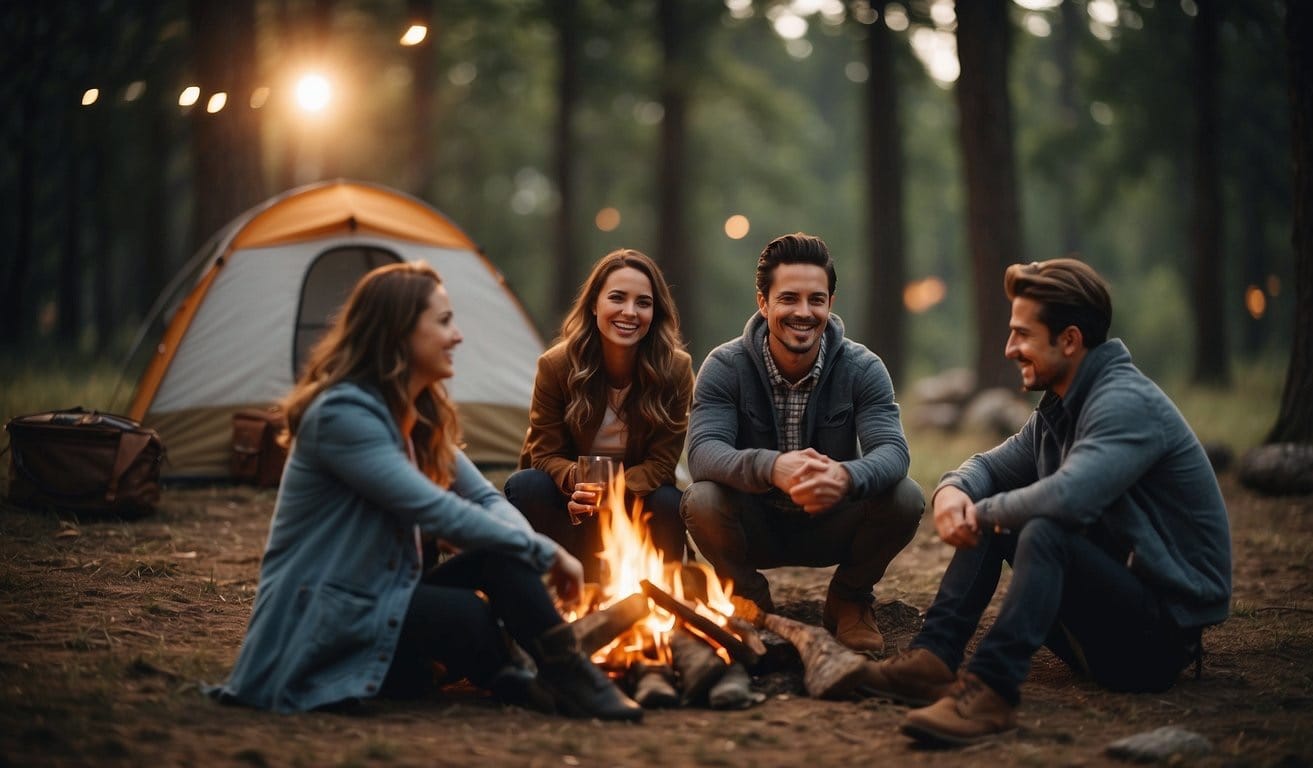
When you engage in camping, you not only immerse yourself in nature but also foster deeper ties with those around you.
This unique setting strips away everyday distractions and cultivates an environment where social connections can thrive.
Quality Time with Loved Ones
Camping provides an unparalleled opportunity to spend quality time with family and friends.
The absence of technology and the busyness of daily life allows for:
- Uninterrupted face-to-face conversations
- Cooperation through teamwork in tasks such as setting up tents or cooking meals
- The creation of shared experiences that build memories and deepen bonds
Quality Time Benefits:
- Increases emotional closeness
- Engages all participants in joint activities
- Promotes healthy, open communication
Developing New Relationships
The communal nature of camping settings, such as shared campgrounds and group activities, fosters the development of new relationships.
You can expect to:
- Meet diverse individuals with common interests in the outdoors
- Engage in activities that require teamwork and naturally lead to social connection
- Expand your social circle through shared experiences unique to camping
Relationship Development Benefits:
- Encourages mutual support and understanding
- Provides opportunities for networking and friendship-building
- Strengthens interpersonal skills and social connection through collaboration
Reconnecting with Nature
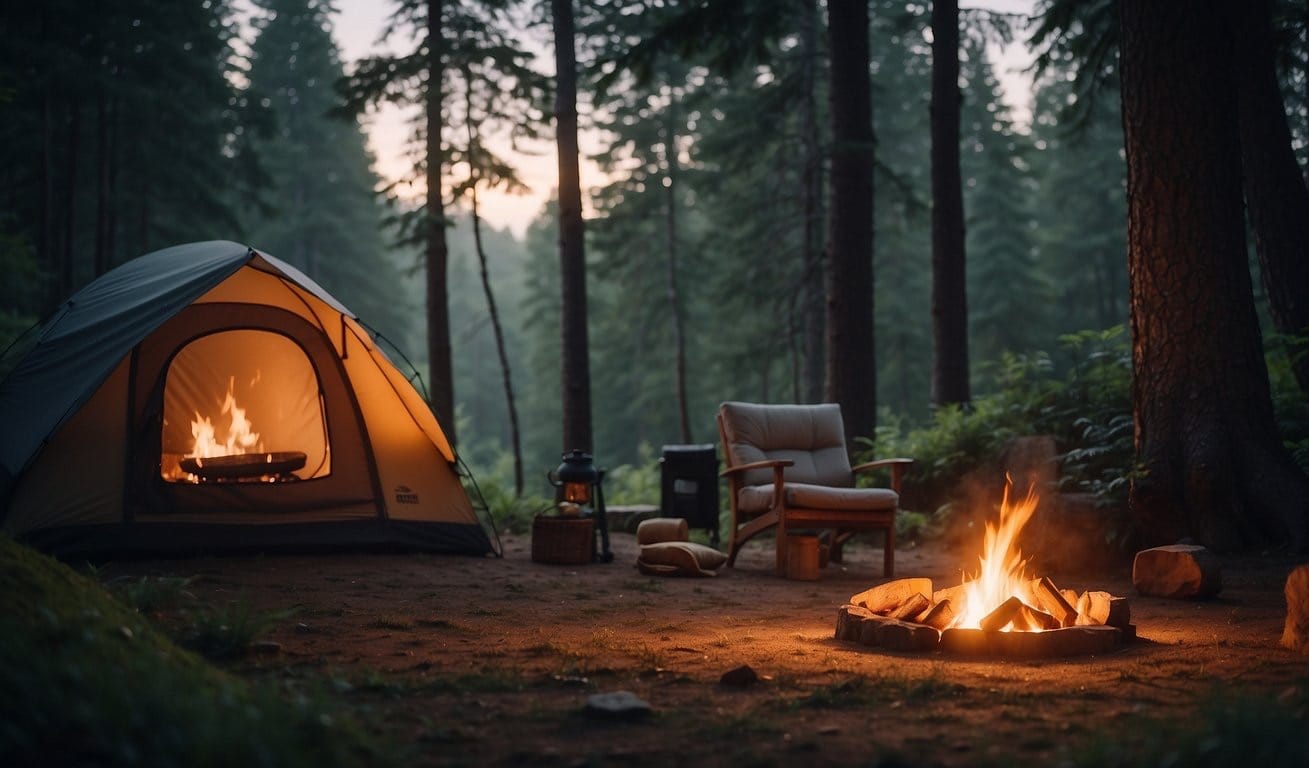
When you step into the great outdoors, you're entering a world where nature holds sway.
Immerse yourself in settings where the call of wildlife and the majesty of forests and mountains offer a profound connection to the natural world.
Wildlife and Natural Environments
In natural settings, you encounter an array of wildlife, each species playing a role in the ecological tapestry.
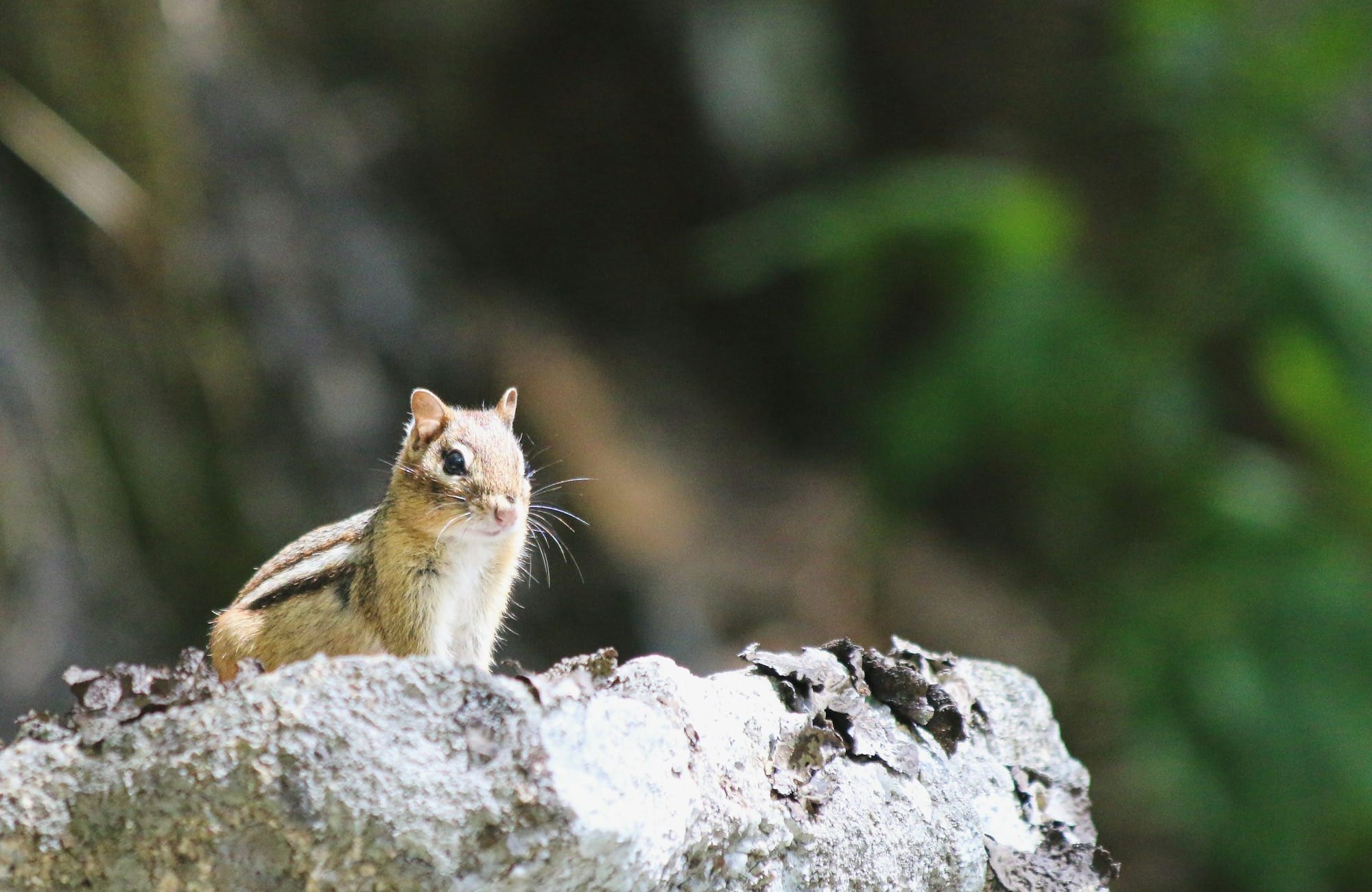
You might spot a deer delicately stepping through the underbrush or hear the distinctive hoot of an owl at dusk.
These encounters are direct, personal experiences that deepen your connection to nature, offering a contrast to the human-made environments you're accustomed to.
- Sightings may include:
- Mammals
- Birds
- Reptiles
- Sounds to listen for:
- Birdsong
- Rustling leaves
- Water flowing
The Serenity of Forests and Mountains
Forests offer a sense of tranquility and timelessness, with the rustle of leaves and the scent of damp earth acting as natural stress relievers.
The mountains provide a stunning backdrop, their towering peaks a reminder of the earth's grandeur.
In these environments, you're not just observing nature; you become part of it.
Your presence in these serene landscapes encourages a quieter, more reflective state of mind, facilitating a deeper reconnect with nature.
- Take in:
- The fresh, oxygen-rich air
- The myriad shades of green
- The quietude of secluded trails
Unplugging and Digital Detox
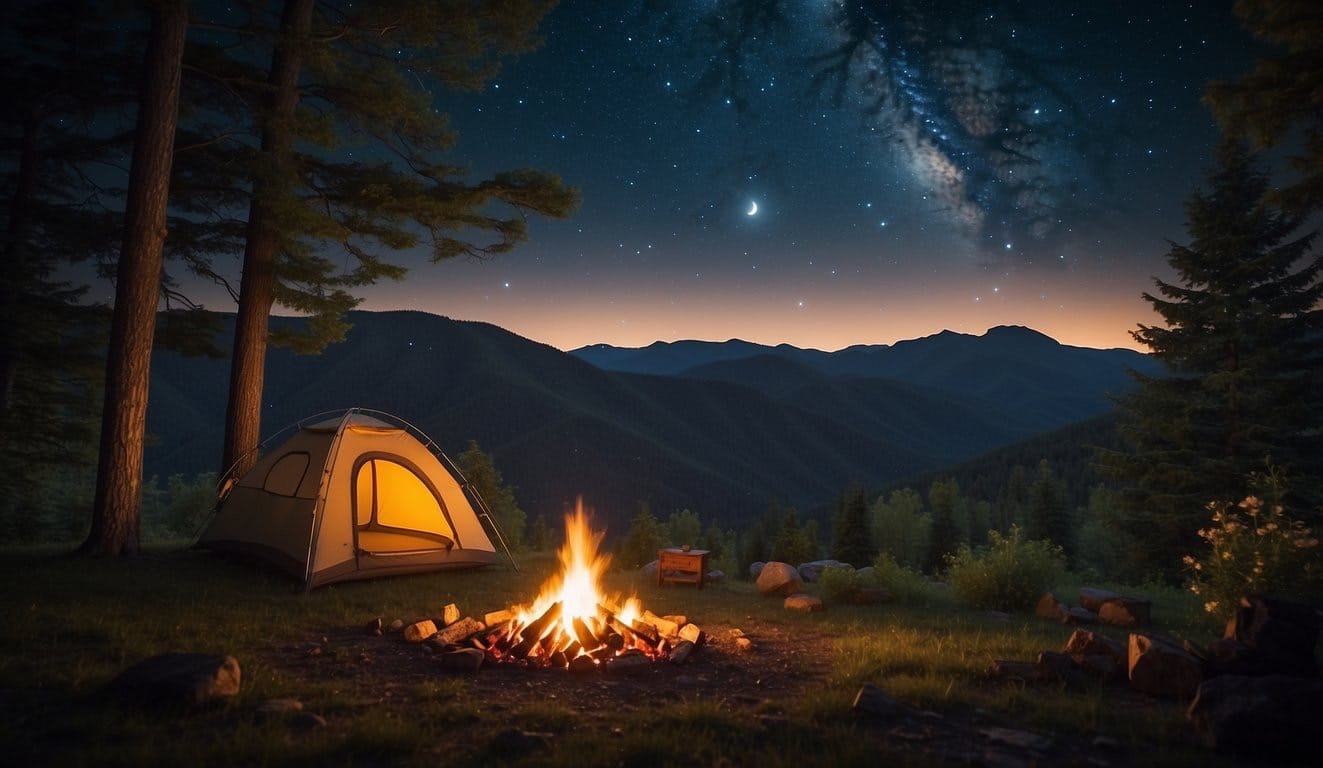
In an age saturated with digital stimuli, camping offers a unique opportunity for you to unplug and undergo a digital detox. Embracing this can reset your melatonin production and lead to better sleep.
Reducing Screen Time
Reducing your screen time is crucial for a successful digital detox.
The constant exposure to screens can disrupt your sleep cycle and contribute to stress. Here's how you can manage it while camping:
- Set clear guidelines: Decide on specific times when you will check your devices, if at all.
- Turn off notifications: Minimize distractions by disabling alerts from your apps.
Promoting Mindfulness and Presence
Mindfulness is about being fully present in the moment, an integral part of the detox process:
- Engage in nature: Focus your attention on the natural surroundings. The sounds, sights, and sensations can help ground you.
- Practice breathing exercises: Deep, mindful breathing can center your thoughts and reduce the need for digital engagement.
Skills and Personal Development
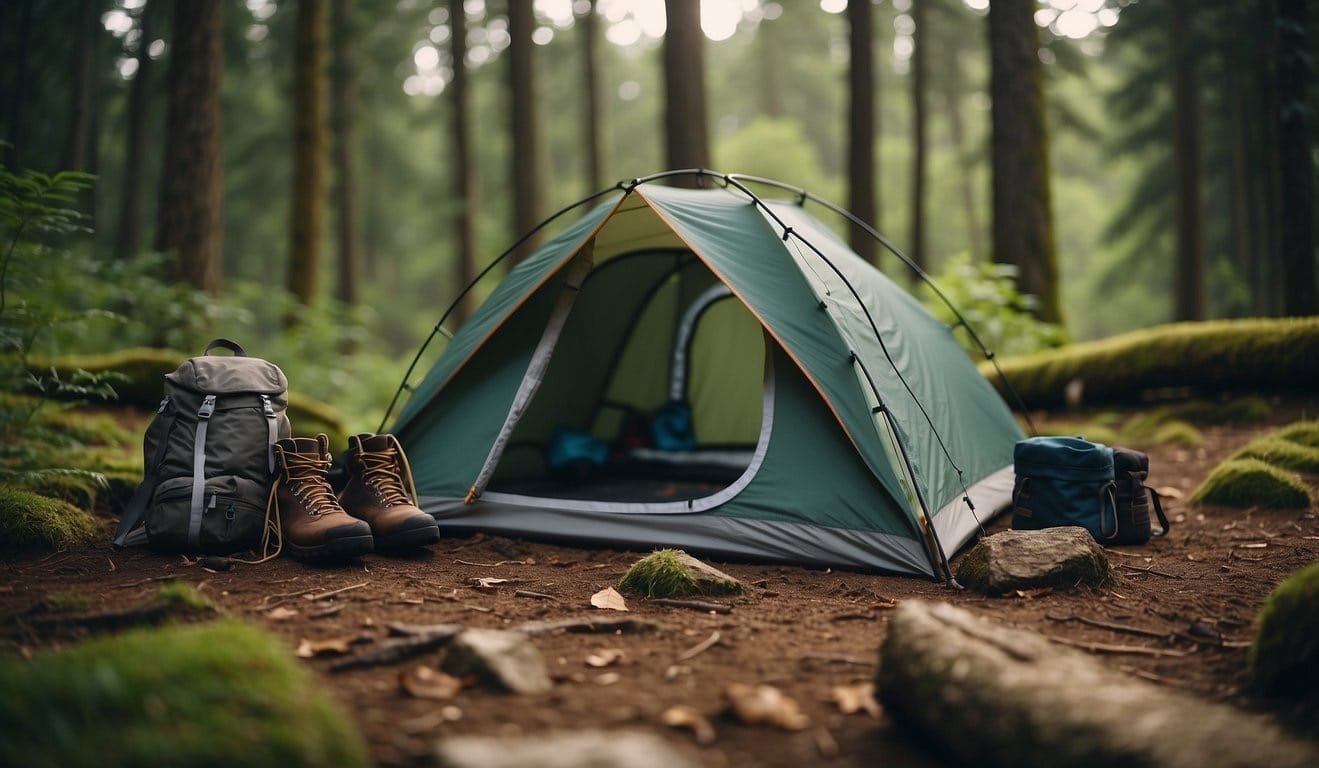
Engaging in camping adventures equips you with a range of life skills, from survival tactics to broadening your cognitive horizons.
It's an educational experience that challenges your abilities and enhances your creative thinking.
Learning Survival and Outdoor Skills
- Survival Skills: You'll gain firsthand experience in navigation, first aid, and weather assessment. These are crucial competencies that can be lifesaving in emergencies.
- Planning: Camping requires meticulous preparation. You learn to plan your route, pack essential gear, and manage food and water supplies. This translates into improved organizational skills in your everyday life.
Fostering Creativity and Perspective
- Creativity: Facing the unpredictability of the outdoors, you're prompted to think outside the box. Problem-solving becomes a creative task when the comfort of modern conveniences is stripped away.
- Perspective: Immersion in nature allows you to view life from a different angle. Challenges faced while camping can make everyday issues seem more manageable, nurturing a resilient mindset.
Adventures and Experiences
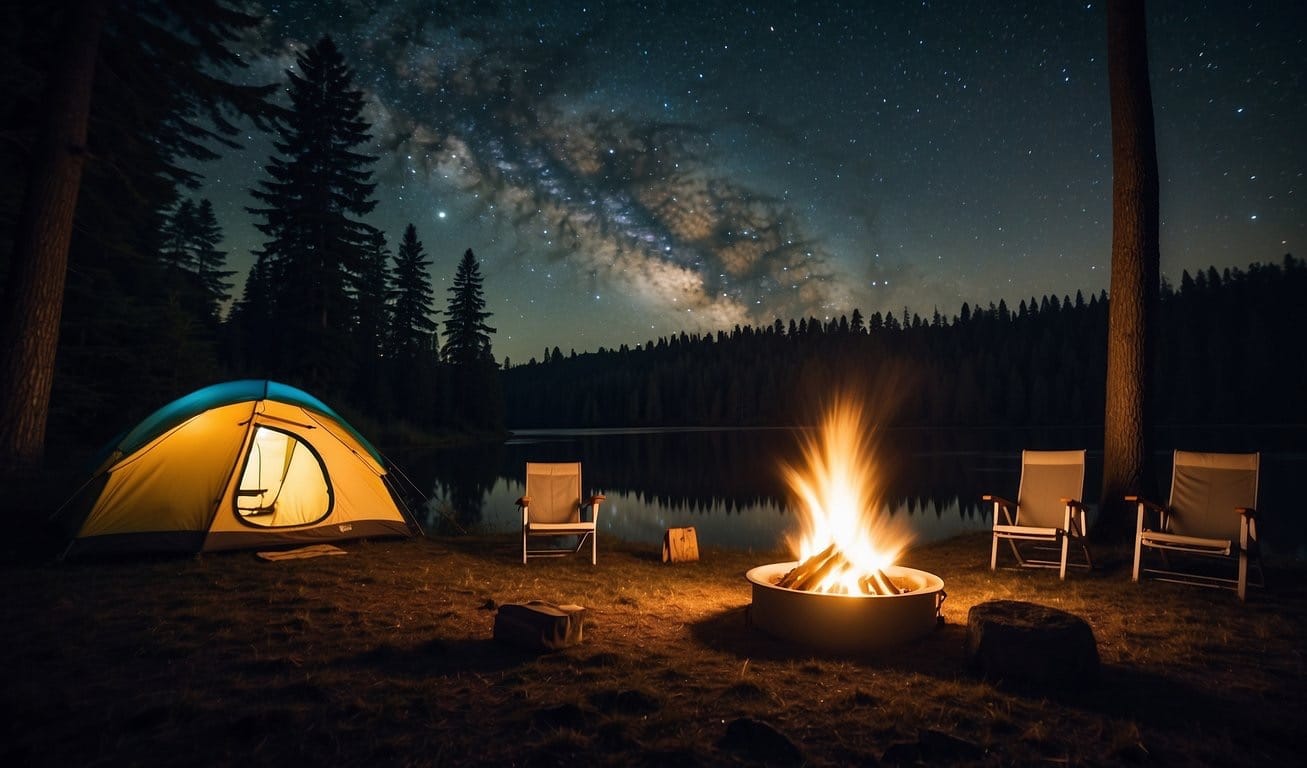
Embarking on a camping trip grants you the unique chance to engage in numerous outdoor activities that combine adventure, excitement, and the joy of immersion in natural surroundings.
The transformative experiences of hiking and fishing teach you about the environment while offering both challenge and tranquility.
Hiking and Exploration
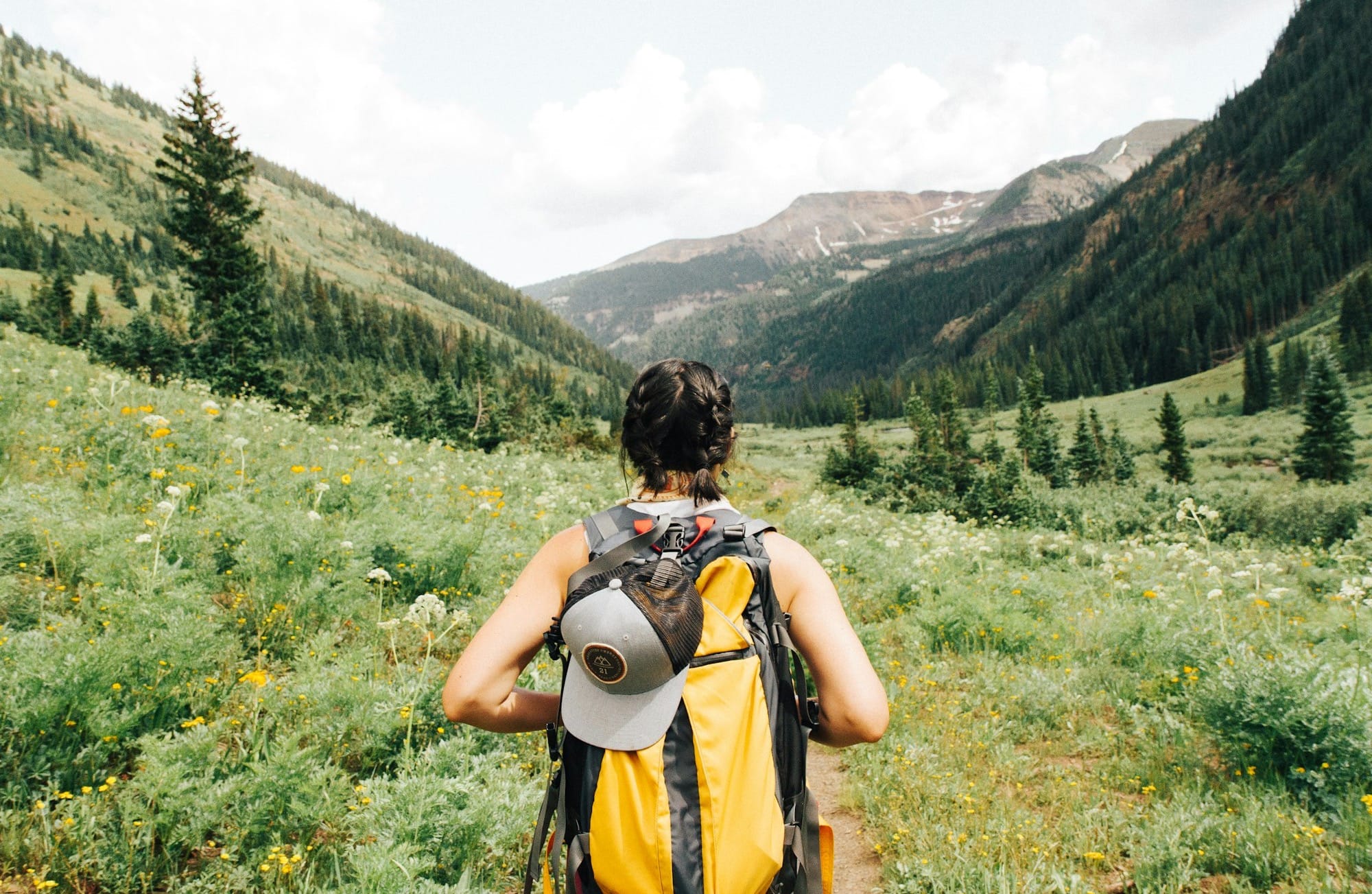
When you set out on a hike, you chart a path through the natural world that leads to not just physical destinations, but also personal discoveries.
Hiking serves as not only a form of exercise but also a means of exploration that can satisfy your innate curiosity about the world around you.
- Trails: Ranging from easy to challenging, trails are gateways to breathtaking views and untouched natural beauty.
- Wildlife: Observing animals in their habitat offers an immersive experience that connects you with the ecosystem.
- Navigation Skills: Sharpen your sense of direction and learn to read the landscape, enhancing your outdoor skills and confidence.
Fishing, Camping, and Outdoor Activities
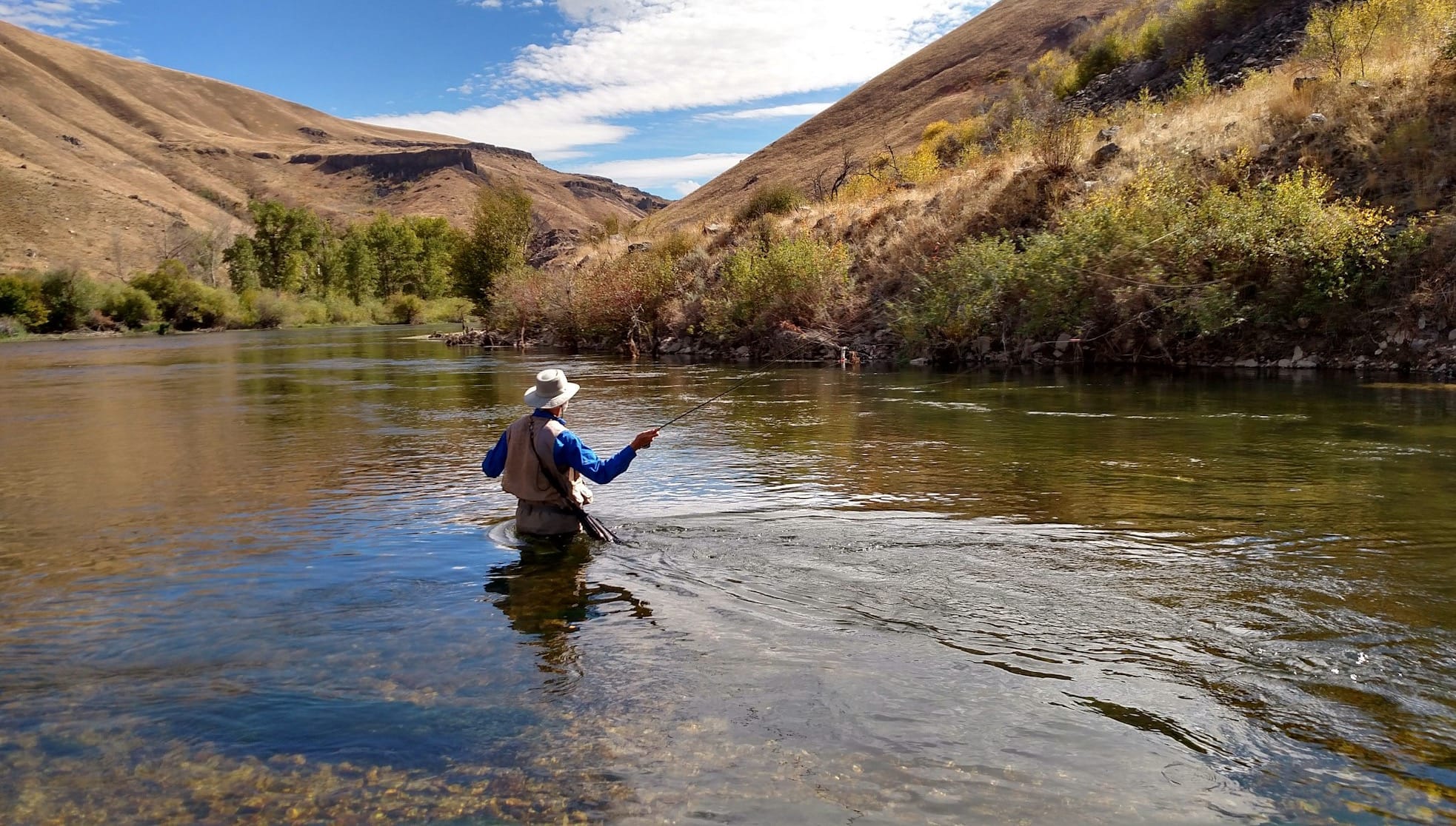
Fishing during a camping trip introduces a serene yet focused activity into your adventure. It's not just about the catch but also about the harmonious interaction with water and life it contains.
Fishing requires patience and skill, providing a calming outdoor activity that can lead to a rewarding sense of accomplishment.
- Learning: Acquire new skills or hone existing ones, from casting techniques to identifying fish species.
- Conservation: Engage with practices that support sustainable fishing and promote ecological balance.
In addition to hiking and fishing, camping places a diverse array of outdoor activities right at your fingertips. Whether you're navigating a kayak through river rapids or simply enjoying a peaceful morning yoga session amid the pines, your engagement with the outdoors invigorates both body and mind with fresh challenges and experiences.
Practical Camping Knowledge
When embarking on a camping trip, being equipped with practical camping knowledge ensures a more enjoyable and safe experience.
From selecting the right gear to setting up a campsite effectively, these details can make a significant difference in your outdoor adventure.
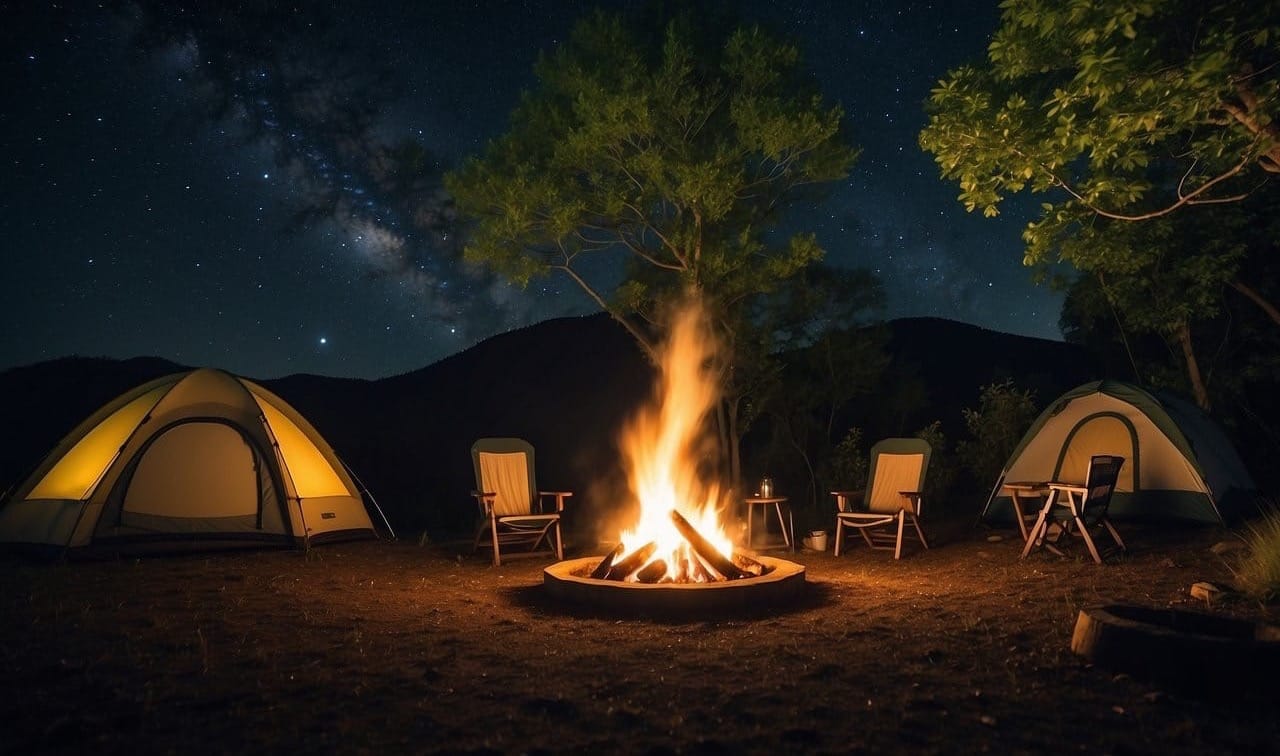
Camping Gear and Setup
- Tents: Your tent is your shelter and primary defense against the elements. Choose a tent based on the size of your group and the weather conditions you expect to encounter. Learn how to pitch a tent properly as a sturdy setup provides comfort and protection.
- Sleeping: A good night's sleep is crucial, so invest in quality sleeping bags and pads. The temperature rating of the sleeping bag should match the coldest expected conditions.
- Setting up Tents:
- Find level ground, free of rocks and debris.
- Tradition and best practice suggest that you should also look for natural windbreaks like bushes or trees.
- Lay down a groundsheet, then assemble the tent on top.
- Secure it with stakes and guylines for stability.
- Find level ground, free of rocks and debris.
Choosing the Right Campgrounds
- Basics: Consider the amenities you need, like water, restrooms, and security. Some campers prefer the tradition of completely rustic sites, while others might appreciate campsites with more facilities.
- Campgrounds:Look for campgrounds that align with your skill level and preferences. Always check whether you need to book your spot in advance, as popular locations can fill up quickly.
- National Parks offer a mix of natural beauty and well-maintained sites.
KOA (Kampgrounds of America) locations provide family-friendly facilities and are often located near attractions.
| Type | Best for | Facilities | Reservations |
|---|---|---|---|
| National Parks | Nature Enthusiasts | Basic to Full | Recommended |
| KOA | Convenience & Recreation | Full | Highly Recommended |
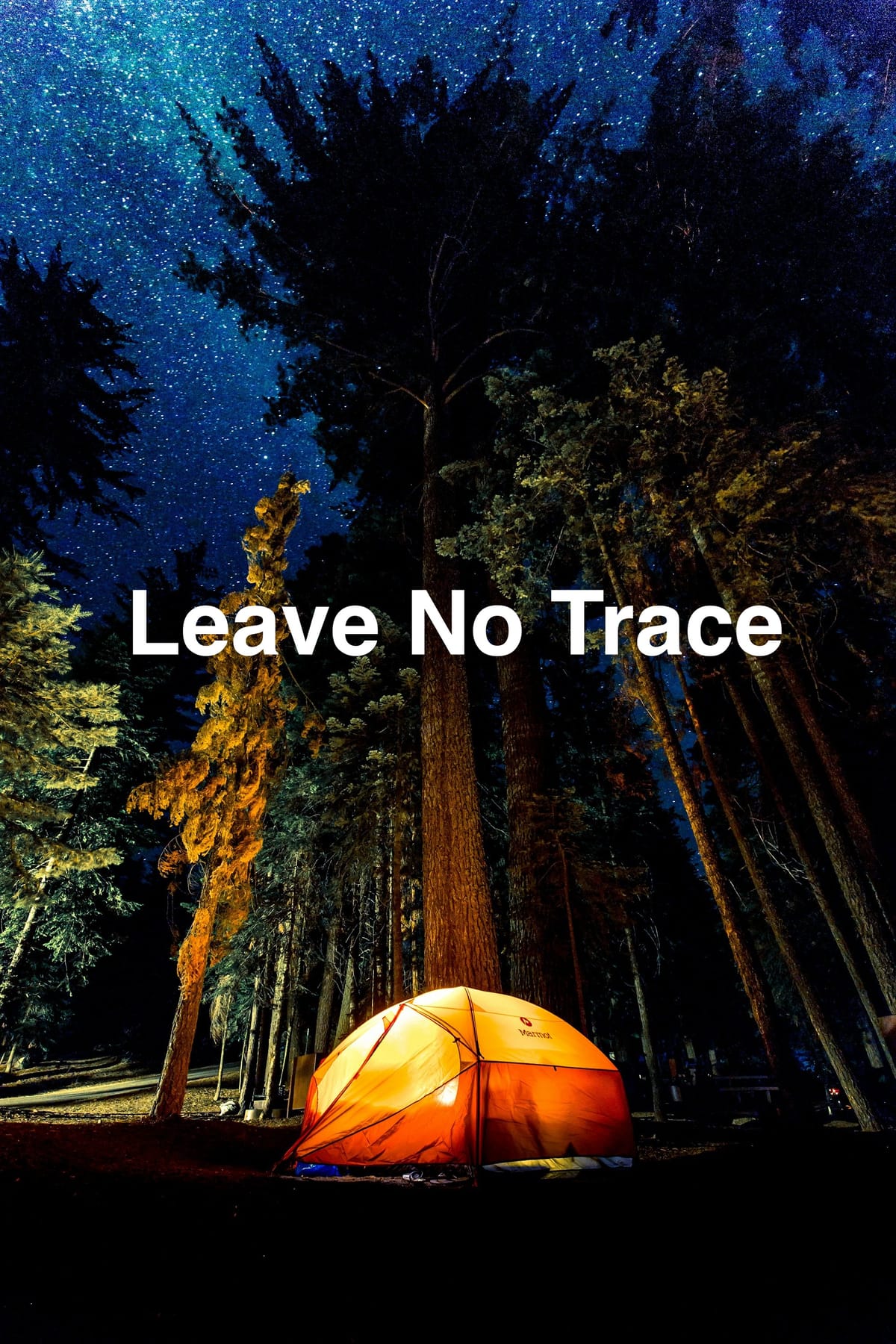
Frequently Asked Questions
In this section, you’ll find clear and concise answers focusing on the benefits of camping across various aspects of health and social life.
What are the mental health benefits of camping?
Camping is recognized for reducing stress and improving mental well-being. Your immersion in nature can enhance mood, provide a respite from daily pressures, and facilitate a digital detox that rejuvenates the mind.
How does camping contribute to physical education?
When you camp, you naturally engage in physical activities such as setting up tents, hiking, and collecting firewood. These activities promote physical fitness, cardiovascular health, and offer a practical education in outdoor skills.
What are the social advantages of going camping?
Camping can strengthen relationships through cooperative activities and shared experiences. It encourages communication and teamwork, particularly when you are camping with friends, family, or in a group setting.
In what ways does camping benefit children's development?
Children can develop crucial life skills such as problem-solving, independence, and resilience through camping. Exploring the outdoors also stimulates a sense of curiosity and an appreciation for nature.
What are some reasons that camping is considered beneficial for families?
Families that camp together can engage in bonding activities, creating lasting memories and traditions. It's an opportunity for family members to connect without the distraction of electronic devices and daily routines.
Can you list the pros and cons of engaging in camping activities?
Pros of camping include physical and mental health benefits. These include increased fitness and stress reduction. Camping also enhances social connections.
Cons may include potential exposure to inclement weather, wild animals, and the need for careful planning and preparation to ensure safety and enjoyment.

